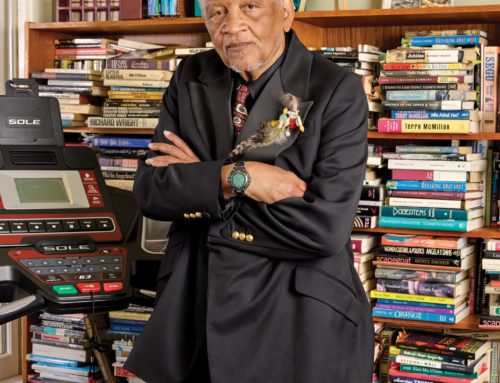Harry Mathews, the author, poet, and translator, passed away yesterday in Key West, Florida, at the age of eighty-six. He is survived by his two children and his wife, the novelist Marie Chaix.
Mathews was born in New York City and later attended Princeton University until a tour in the Navy interrupted his studies. While in the Navy, he eloped with the artist Niki de Saint Phalle, with whom he was to have two children. After his service was completed, Mathews transferred to Harvard University in 1950 and graduated in 1952 with a B.A. in music. He moved with his family to France and then to Majorca before returning to Paris in 1956. During his time in Europe, Mathews decided to not pursue a career in music but instead to focus on writing. Mathews separated from his wife in 1960.
In the early 1960’s, Mathews founded the influential literary journal, Locus Scolus, with John Ashbery, Kenneth Koch, and James Schuyler. He served as editor at the journal and also began contributing to the Paris Review during this time. In 1962, his first novel, The Conversions, was published and subsequent novels includeed Tlooth in 1966, The Sinking of the Odradek Stadium in 1972, Cigarettes in 1987, and My Life in CIA in 2005, all of which are available from Dalkey Archive Press.
Mathews was a member of Oulipo, the avant-garde French literary society whose other members included Raymond Queneau, Italo Calvino, Jacques Roubaud, and George Perec (whom Mathews also translated). Mathews’s honors also include a grant from the National Endowment for the Arts and an award from the American Academy of Arts and Letters. In later life, Mathews spent portions of each year in New York, Paris, and Key West with his wife, Marie Chaix.
While Mathews was known for technical sophistication, there was more to his writing. The critic Barry Schwabsky wrote in the Times Literary Supplement that Mathews’ “writing is imbued with a childlike sense of wonder at both language and the world it can conjure, though always tinged with poignancy, with the transience of both words and things.”
Or, as Mathews said in an interview with John Ashberry in the Review of Contemporary Fiction:
“I think that what matters in writing, as in music, is what’s going on between the words (and between the notes); the movement is what matters, rather than whatever is being said. I like very much what the English composer Birtwhistle—is that his name?—said about his pieces. He said you could change all the notes in it and it would still be the same piece. That really rang a bell when I read it because it could be said about not only my own work but written work in general. What matters is the process and not the substance that the process is using.”
We wish to offer condolences to the family, friends, and fans of Harry Mathews, who will be sorely missed.


